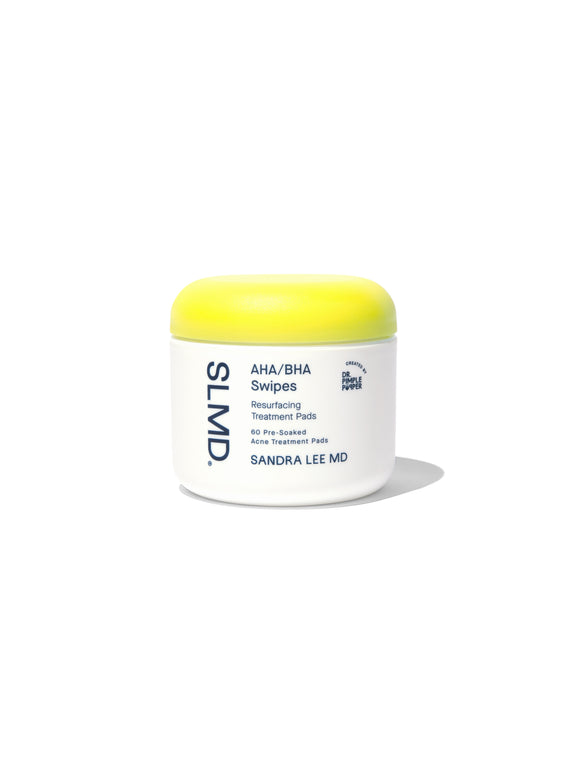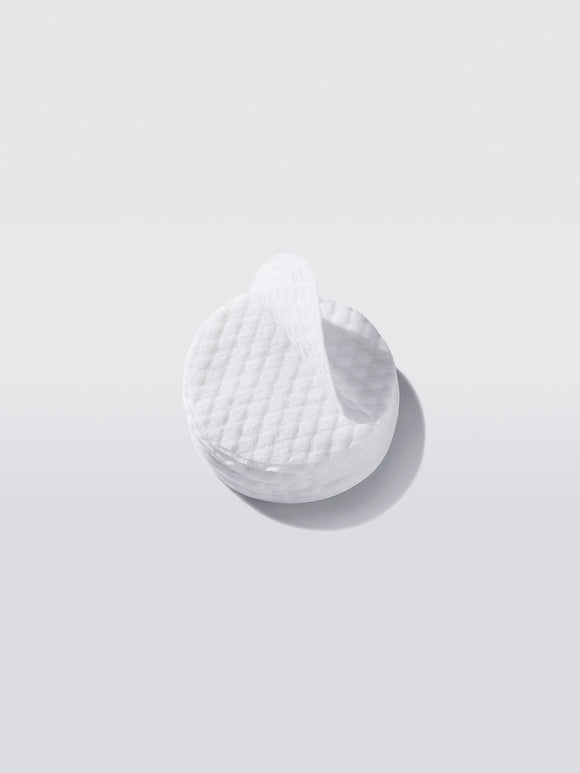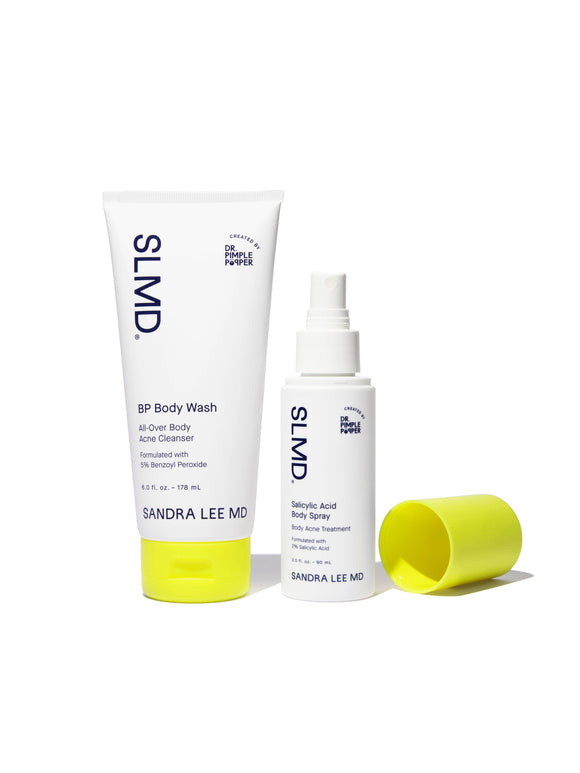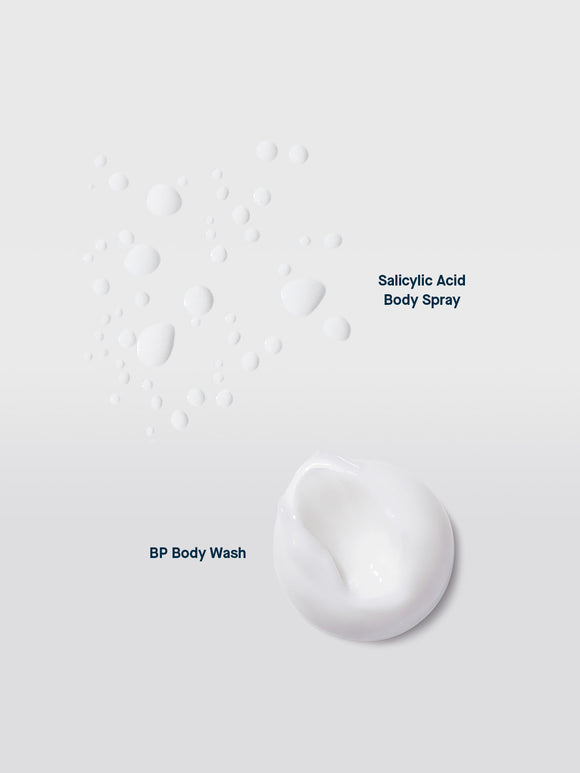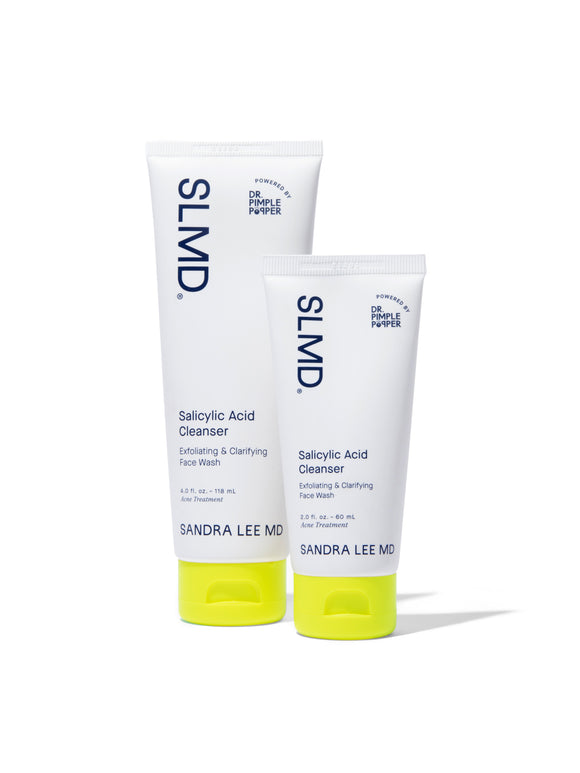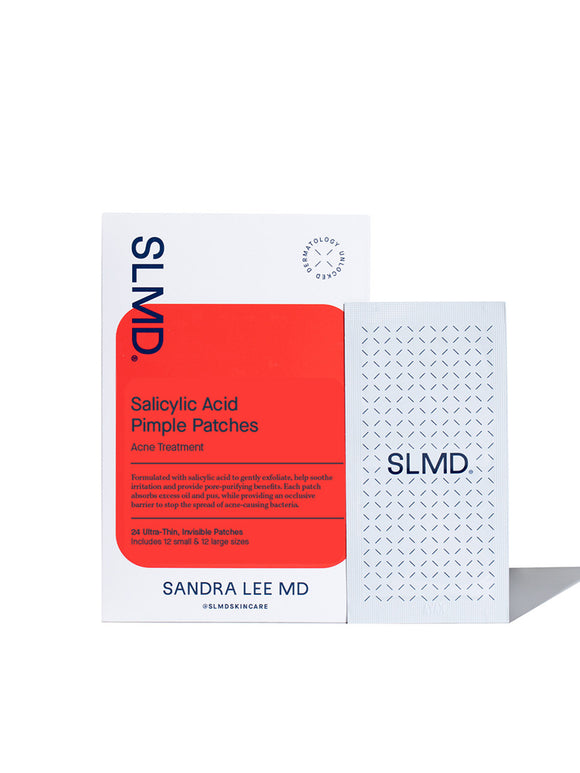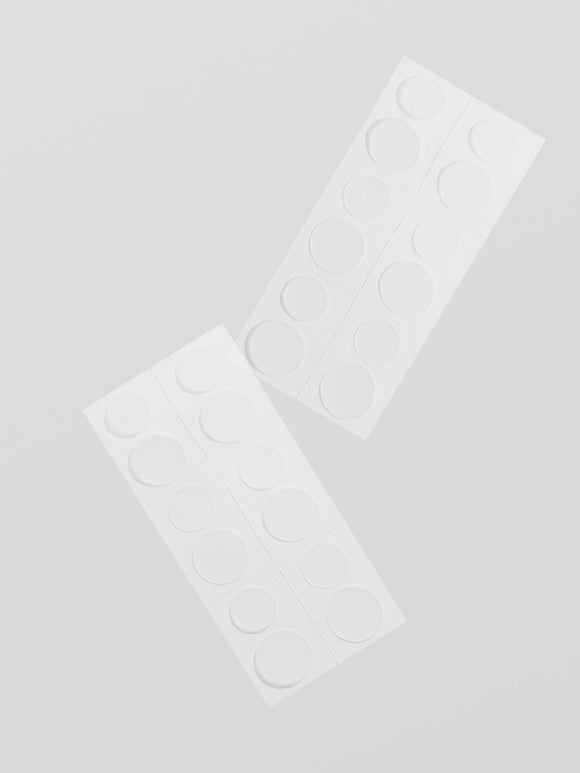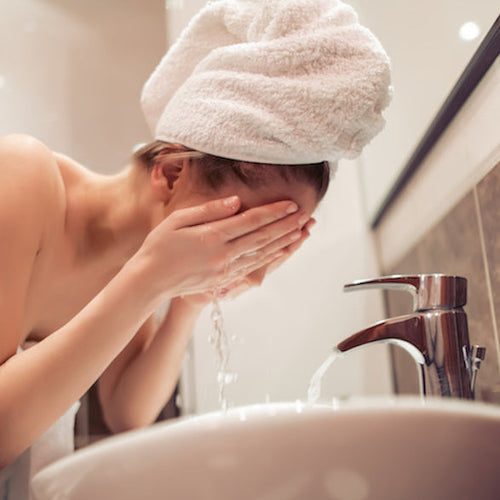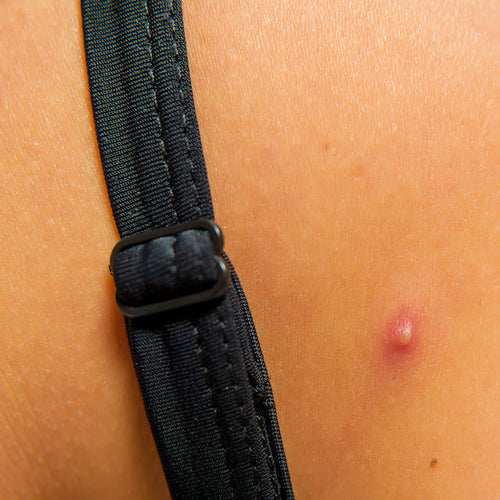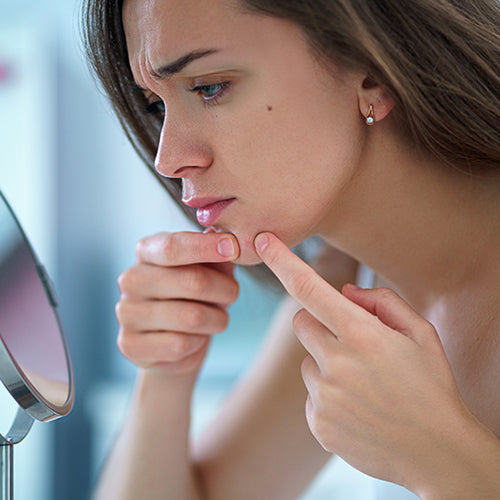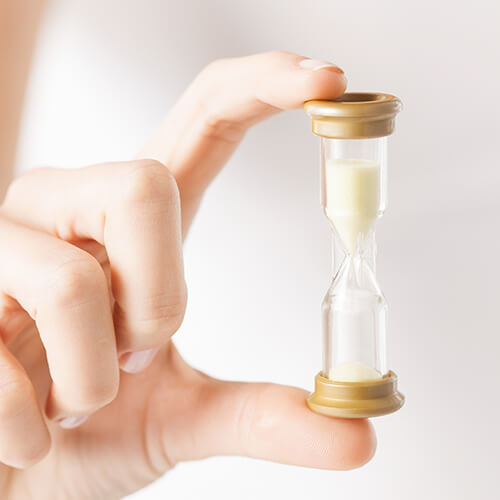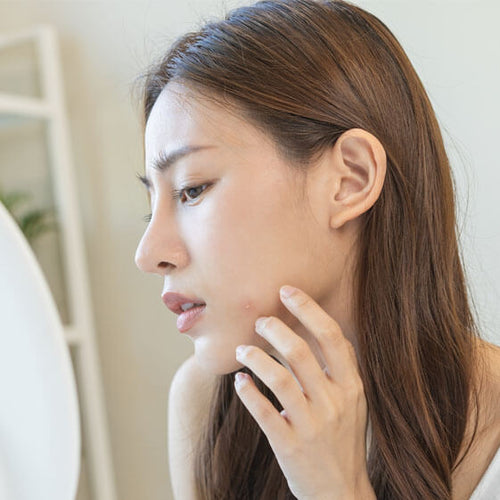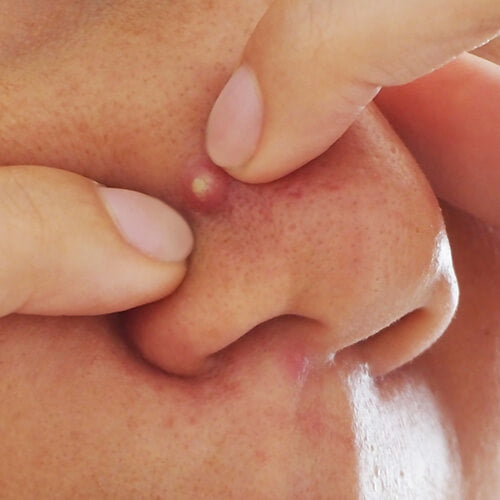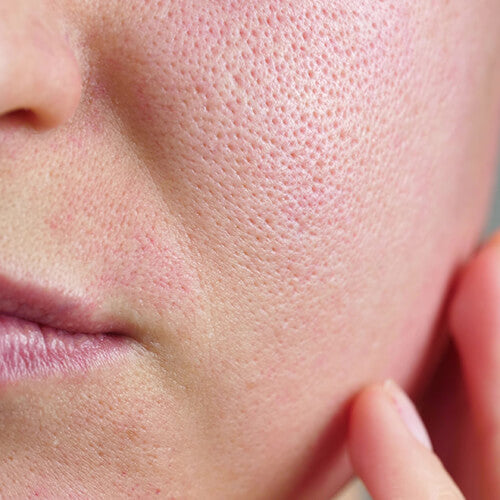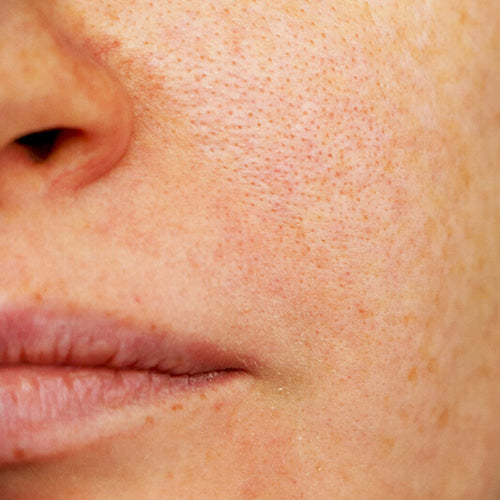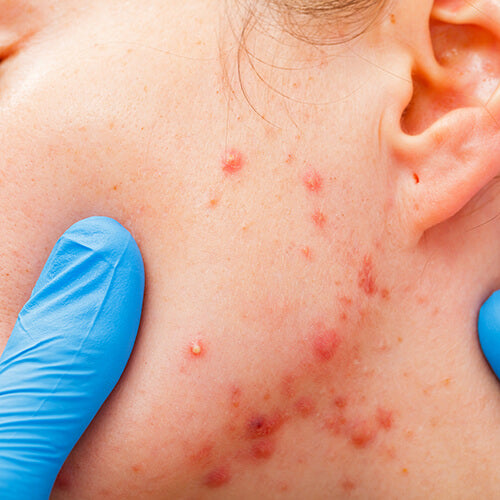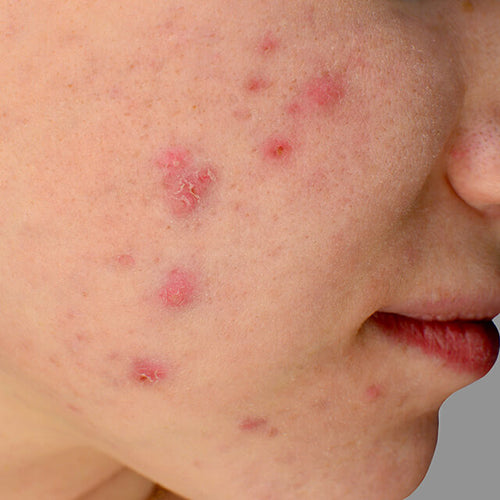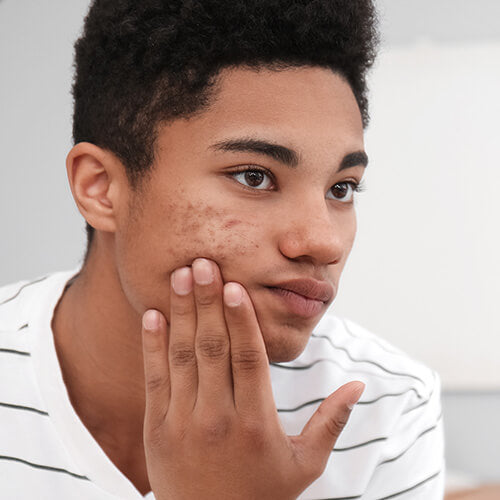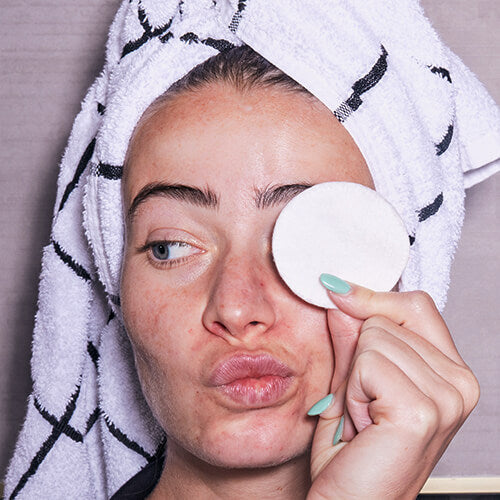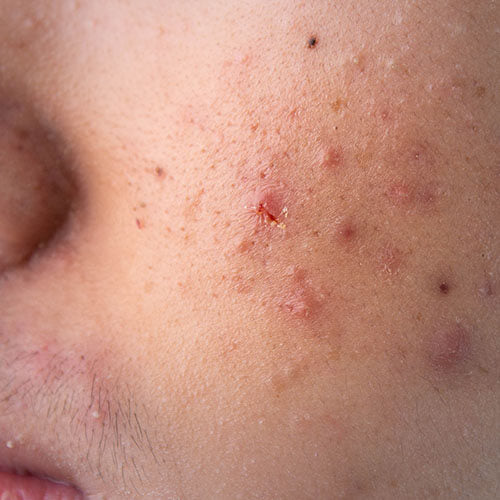
Acne Myths That Might Surprise You
Think you know all the facts about acne? Time to put your knowledge to the test.
Published:
3 minute read
You may have noticed that our fearless leader, dermatologist Sandra Lee, MD (aka Dr. Pimple Popper), has spent a lot of time clearing up all the myths about breakouts. But new ones keep, well…popping up — like a pimple right before prom. So here are 5 acne myths that might surprise you: see if your skin smarts measure up.
#1 Wearing makeup causes acne
This one’s a bit tricky, so let’s first review: clogged pores cause acne. When the hair follicle fills up with excess oil and dead skin cells, it causes blackheads or whiteheads. If this triggers an immune response, you get inflammatory pimples.
So while makeup isn’t the cause of acne, per se, certain products, including some cosmetics, can occlude — or block — your pores. This makes it more likely for oil and cells to become trapped, triggering breakouts. Moreover, makeup and makeup brushes harbor microbes, which can break down your skin barrier and leave skin more susceptible to C. acnes bacteria.
If you have acne-prone skin, look for makeup that’s labeled non-comedogenic, meaning it’s not made with ingredients known to clog pores. And be sure to always wash your face before bed: sleeping with makeup on is a sure fire way to wake up with a morning pimple (or many).
After removing your makeup, wash your face with SLMD Salicylic Acid Cleanser, formulated to keep pores clear of dirt, oil and debris.
#2 Washing your face more often can clear up breakouts
This one’s somewhat true — to a point. According to Dr. Lee, people with oily or acne-prone skin need to wash their face at least twice a day. If you wear a mask, exercise, or work in a polluted environment (like a greasy kitchen), try to cleanse afterwards, too.
But don’t go overboard: excessive washing can strip skin of its protective natural oils, leaving it vulnerable to irritation, inflammation, and (ironically), more breakouts. What’s more, your skin might crank up oil production to compensate for being dry — which will probably lead to more acne.
Dr. Pimple Popper's Acne Picks
#3 Only people with oily skin get acne
Here’s what’s true: people with oily skin are more likely to have acne. That’s because sebum is a major contributor to breakouts. However, that doesn’t mean that only those with excess oil get pimples.
According to Dr. Lee, anyone can get a pimple, even those with dry skin. That’s because pores can become clogged as a result of things like physical occlusion — mask wearing, for example — which causes acne mechanica, or even hair products, which cause pomade acne.
If your skin tends to be dry or sensitive but still breaks out sometimes, make sure your moisturizer won’t clog pores. Try SLMD Facial Moisturizer or Hyaluronic Acid Moisturizer.
#4 Seeing a derm is the best way to clear up chronic acne
Dr. Lee says that there’s a common misconception that stronger products — like those you get from a dermatologist — are always better. While prescription drugs like antibiotics and isotretinoin (aka Accutane) can be quite effective, they’re not the first line of defense due to their potential side effects.
She suggests starting with the lowest concentration of active ingredients that still get the job done. Salicylic acid, sulfur, benzoyl peroxide and retinol are all quite effective at over-the-counter levels.
If you’ve been treating your acne with high-quality products for several months without improvement, or your acne is severe enough to cause scarring, then it’s time to see your dermatologist to review your options.
SLMD Acne System (available in both 30 & 60 day kits) has everything you need to manage your acne in three simple steps, two times a day.
#5 For some people, acne treatment just doesn’t work
This might just be the worst acne myth around, says Dr. Lee, because it’s so darn discouraging. The truth is, there is no cure for acne — but it can be managed. For most people, this means making a commitment to an effective skincare regimen and sticking to it.
Acne treatment results don’t happen overnight. And sometimes, there are underlying causes beyond our control: like monthly hormonal fluctuations, or necessary medications that cause breakouts. But in virtually all cases, notes Dr. Lee, some measure of improvement can be achieved — whether it’s through OTC skincare, prescription drugs, in-office treatments, or all of the above.
Stick with your routine: if pimples pop up while you’re using an acne regimen, try adding targeted solutions like Saliyclic Acid Pimple Patches.

Dr. Lee's Last Word
It seems like all the time a new acne myth is popping up on social media. It’s why I feel so strongly about educating people about skin health, and letting everyone know that we do have the tools to manage acne. Seek out the truth and empower yourself, because you deserve healthy skin!





